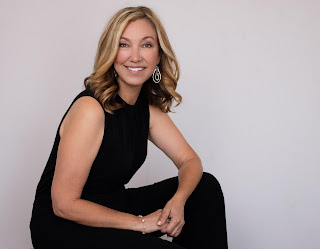In this series, we highlight those working in the Veteran and Military communities to help make reintegration and life a little better for everyone. We wanted to ask some of the common questions about how they got to where they are and how they inspire others to do more.
Interviewer: Stacey Ebert, Veteran Support Network
Organization: “The Power of Our Story: Coffee and Conversation”
Title in Organization: Founder
Why Veterans? In 2003, I lost my father to suicide. That defining moment in my life changed my trajectory and led to what I am doing now – through storytelling, building community for veterans and first responders. To lose someone to suicide is surreal. I was blindsided and in an instant, my life forever changed. I have 4 boys and life was busy. I had a small, close knit group with whom I could really let my hair down and feel safe to cry – often the world didn’t seem safe when I was feeling raw with confusion, vulnerable, and full of grief and guilt. I had faith as a strong anchor, my family who loved me, and I was wired and conditioned to be open when “life hit”. That planted a seed in me; I didn’t want anyone to have to feel like they needed to walk this road alone. It became clear to me to use this “mess as my message” – to become that wounded healer.
What inspired you to start this organization? 11 years later, I had a chance to go back to school for Counseling, and happened to sit next to an Army veteran. One day we began to talk and that chat opened my eyes to the high suicide rate of veterans, the stigma associated with asking for help, and the need for our veterans to have effective support. I was horrified at the lack of even a “warm hand off” when people retired or separated from the military. I wrestled with this a lot; I couldn’t shake the thought that we are sending kids off to war at a young age and then do little to help them process their journey or help them to transition to civilian life upon the close of their military service.
What's your favorite thing about working in this field? At its inception, I began inviting one veteran and his wife over to share his story with my family. I then asked other civilians to come over and listen. This idea of having a gathering with food and stories, always stuck with me. When we hear someone articulate their own journey, the trauma, the recovery, it helps us understand our own stories. It also deeply connects us. I know how much having my own group of humans with whom to walk through life helps me and I wanted to create platforms for my veteran and first responder friends to do the same.
These coffee groups provide:
A judgment-free place of friendship and peer support
A cohesive group made up of all branches and jobs with whom to navigate that transition to civilian life
A place where those doing well pay it forward
How has community service involvement impacted your life? In creating these groups that serve the veteran and first responder community, I have learned much about leadership and connection. I love the wholeheartedness, the genuine interactions, the discipline, the integrity, and the total support for one another.
Why should veterans and families use these services? The Power of Our Story: Coffee and Conversation groups can help to serve as a bridge after service. Many who have met in our groups have connected off-line. They have come together for projects, advice, support, hiking expeditions, and have done other fun things together. THIS is important and can help to make the transition to civilian life feel less lonely and far more supportive.
What, in your opinion, is the most important thing soon-to-be-Veterans and their families should consider before leaving military service? I suggest to try to prepare as much as possible for the transition to civilian life starting a year before separation. Get on LinkedIn - make friends - start building before you separate - try to get an Internship with DoD Skill Bridge. LinkedIn has many groups that are vetted and provide great advice and assistance to active duty/veterans. I also suggest families to try to get a strong understanding of trauma and anxiety that often arise with transition. I love Dr. Shauna Springer’s book Warrior: How to Support those who Protect Us; it is another great resource for understanding and effectively supporting our warriors.
Anything else you would like us to know about you, your past experiences, or advice for veterans? As a civilian, from all the stories I have been privileged to hear, there seem to be common threads to integrating back to civilian life.
Learning what new courage looks like: It’s about NOT suffering in silence anymore - learning to be open and vulnerable.
Setting a new target: The new target is LIFE - focus on building relationships, on communication, sharing the hardships of transition - learn - be curious - focus on great SELF-care (it is not selfish). Vulnerability can be difficult. The new target of Life is what ties us together. It is that vulnerability that helps to relieve shame and protects against isolation.
Prolonged stress depletes the body of nutrients: Make sure to take care of yourself both mentally and physically, get a blood test to note any nutritional deficiencies, and really focus on eating well and exercise.
Why this person? Sara is a connector. Driven by her desire to be a supportive ally to the veteran community, she aims to bridge the gap between civilian and veteran. Both facilitating and joining in the collaborative conversations is her way of giving back to a group of individuals who have given so very much to us all.
